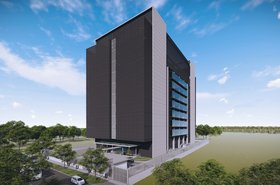Consultancy TeleGeography has released a WAN Geography Benchmark tool to help organizations work out the best data center for their needs.
The benchmarking tool is intended to help organizations assess the best locations in terms of optimizing carrier point-of-presence coverage, connectivity, and cost, based on TeleGeography’s research.
“Each data center facility has its own unique characteristics and offers different advantages. Network designers and managers have over 4,000 data centers and hundreds of carriers to consider when growing their international presence,” said Greg Bryan, senior manager of enterprise research at TeleGeography.
He added that the benchmarking tool can deliver scoring for each facility based on an enterprise’s individual requirements, supposedly reducing the complexity of decision making, enabling organizations to put together business cases based on trusted third-party data. “We give enterprises the tools to understand the opportunity in each facility and build the networks they need,” said Bryan.
In terms of carriers, Equinix FR5 (in Frankfurt), Telehouse London Docklands West (London), CoreSite LA1 (Los Angeles), MEGA-I (Hong Kong), and Equinix HK 1 (Hong Kong) all score highly, with Equinix FR5 heading the pack, offering 166 carrier networks and 37 cloud providers.
Organizations are not just looking for strong partners to house their primary IT, but also back-up locations, typically categorized on the next tier down, to provide back-up. Latency and other technical issues still remain a key concern for organizations as much as cost, even for back-up.
“When it comes to selecting data centers and carriers to support a wide-area network, two major challenges are scale and competing priorities. Network designers and managers need to take a lot of factors into consideration such as office proximity, cost, and connectivity. This can be a very timely and costly process without the right tools,” said Tim Stronge, vice president of research at TeleGeography.




